If part (or all) of your job involves interviewing candidates for technical roles, I can guarantee you are doing some things wrong. We are all doing some things wrong, if you aren’t, please read this article instead.
The purpose of this article is to point out just one issue I have observed continuously over the years; When interviewing candidates for technical acumen, we rely too much on our personal experiences, not objective data.
Things you know
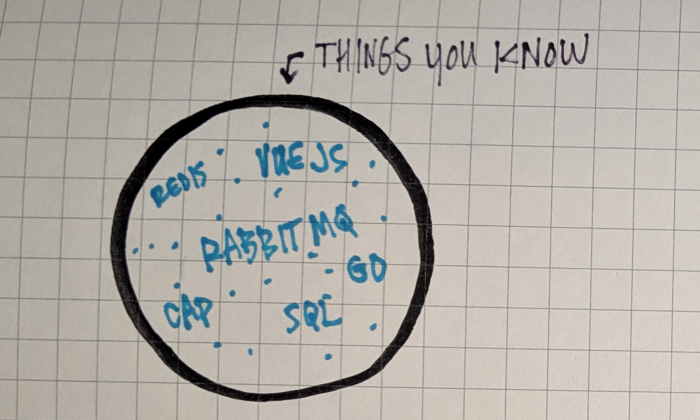
When assessing a candidate, you are working from a point of the technical things you know and are comfortable talking about. Your questions will be geared around the technologies you feel strongest at because you can easily determine right and wrong answers.
Things they know
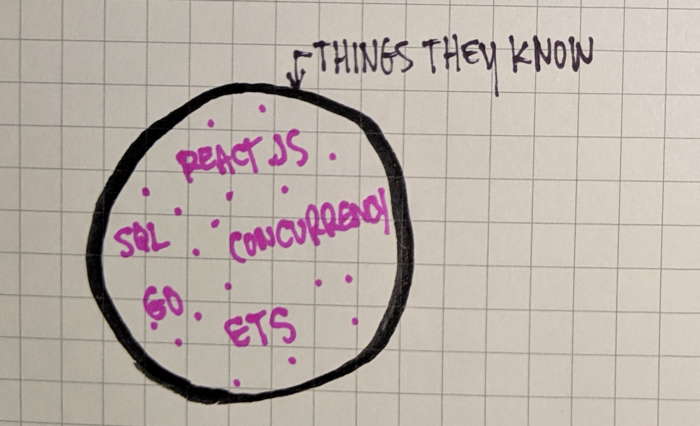
The candidate comes in to the interview with all of their technical knowledge, which may or may not correlate with yours.
“This candidate is not a senior”
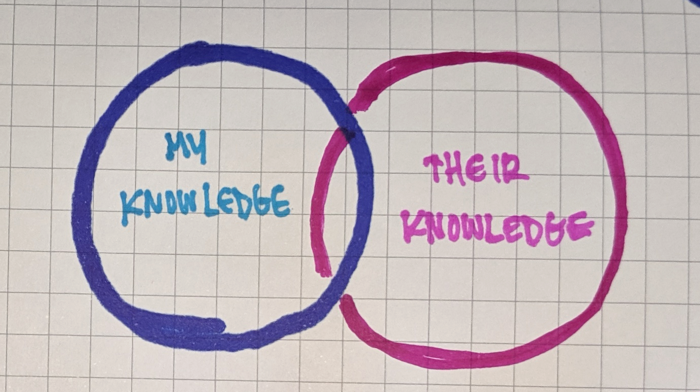
When you have a low overlap between your technical knowledge and the candidates knowledge your assessment is that the candidate is not qualified. Notice the 2 circles representing knowledge are the same size, but you are only seeing the overlapping part of the diagram. Therefore you come to the conclusion the candidate only holds a small fraction of the knowledge you hold.
“This candidate is perfect”
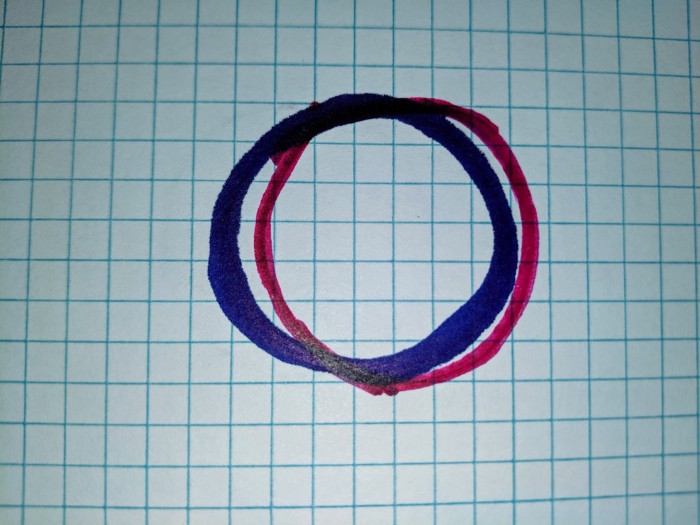
When there is a large overlap in knowledge, the candidate seems to be smart and qualified. What you’ve really interviewed for is the candidate that is most like you.
“This candidate knows nothing”
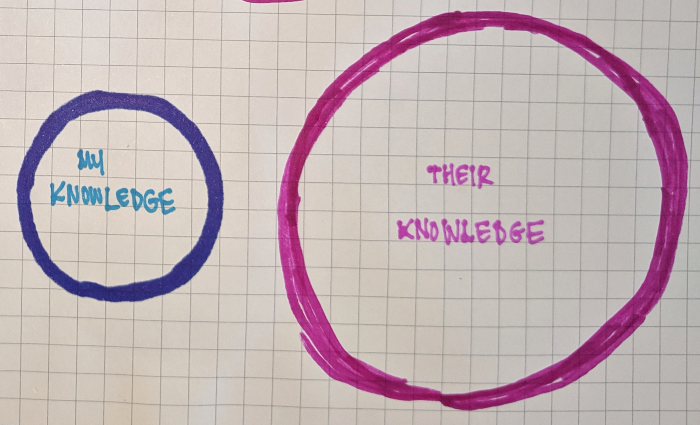
This is the scariest scenario to me. This diagram reflects a candidate with a much larger base of knowledge, but no overlap with you. Unless the skills you hold are unteachable this candidate should be given a high appraisal. Unfortunately, they aren’t.
“This candidate is not a senior”
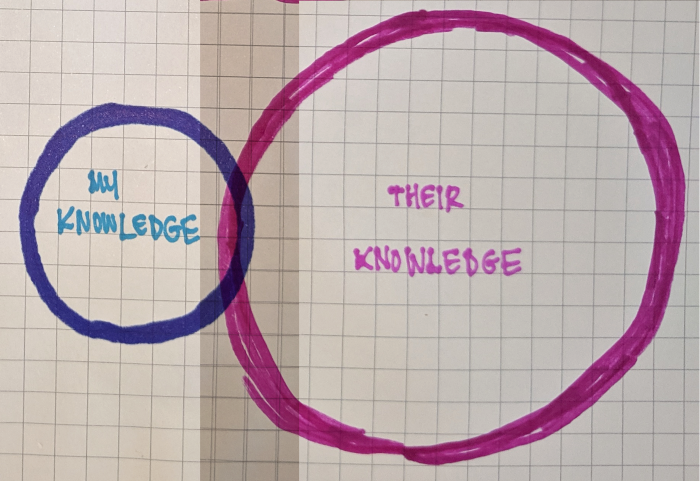
This one is almost as bad. In this case the candidate has a large knowledge base, but very little overlap with you. You inaccurately assess this candidate as “okay” but not qualified at your level.
Some perspective to keep in mind
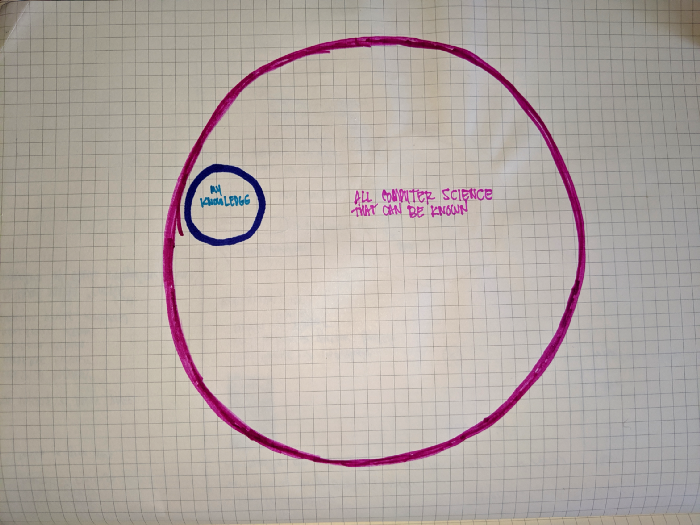
This diagram shows your knowledge compared to all the subject matter that is knowable. (Your knowledge has been enlarged considerably so you can see it.) Keep this in mind when assessing candidates, their level of overlap with you can be relatively meaningless.
Take-aways
- When assessing technical knowledge only ask questions that are directly pertinent to the role you are hiring for.
- Instead of focusing on specific subjects, focus on generally relevant topics. Assuming what the candidate needs to know can be taught, knowing they can learn is more important than any one technology.
- Be humble. In someone else’s interview, you aren’t qualified.
